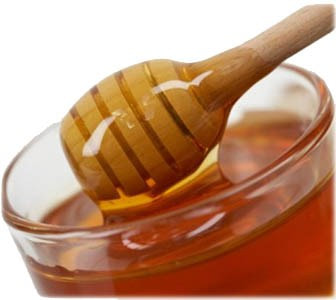|
Before the days of antibiotics, honey was a popular and powerful cure-all used to treat numerous ailments since the ancient Egyptians. With the development of modern medicines in the last century, though, honey went out a fashion and it’s antibacterial powers fell by the wayside. Now, according to researchers at the University of Whales Institute, honey may be on the verge of making a medical comeback.
A recent study headed by microbiologist Rose Cooper has found that even a small amount of Manuka honey can help fight the notoriously –drug resistant bacteria MRSA, as well as other drug-resistant strains. The special type of honey made specifically from nectar of New Zealand’s native Manuka tree has been shown to make super-tough MRSA more sensitive to antibiotics, essentially reversing the drug resistance. Wait before you hit the honey pot, though – Cooper’s team thus far has only been tested in a petri dish; humans and animal’s aren’t quite in the picture – yet. While the ultimate goal of this promising discovery is to make a therapeutic wound cream, research is still in the preliminary stages and a final product is years away. And a word of caution to overzealous honey fans: while sometypes of honey to have the healing capabilities of decreasing the pH of skin injuries, draining wounds, and killing bacteria, others have spores that can infect wounds and lead to a nasty gangrene infection. So save the honey for your tea and leave the healing to the professionals, for now at least. -EM
0 Comments
Every March, the NCAA pits the best 68 (previously 65) college basketball teams in a tournament that has come to be known as “March Madness.” To basketball purists, it’s a month of quality basketball to be dissected and analysed. For everyone else, there’s the thrill of making a bracket and watching it fall apart as underdog teams pull off the craziest upsets. (How bout them Bulldogs of Butler University?)
This past March, 5.9 million people submitted brackets to ESPN’s NCAA Basketball Tournament Bracket Challenge. Out of the 5.9 million, only 2 people correctly guessed the final four. Nobody was even close to the ever elusive perfect bracket. It got me thinking – what’s the probability of a perfect bracket? Intuitively, the probability of getting a perfect bracket is dependent of a person’s knowledge of basketball. A person who is more familiar with the college game is more likely than a person with no knowledge to guess every game correct. But let us forget about that for now. Let’s simplify the problem – what’s the probability of a perfect bracket is every winner is chosen randomly? Currently, there are 68 teams competing in the tournament. However, because ESPN doesn’t require participants to pick the first round games, the bracket really consists of 64 teams. If the bracket contains only 2 teams (Team A and B), then there is 1 game and 2 possible outcomes (A wins or B wins). If the bracket contains 4 teams (A, B, C, D), then there are 3 games (A vs B, C vs D, winner of AB vs winner of CD) and 8 possible outcomes (A over C in championship game, C over A, A over D, D over A, B over C, B over D, C over B, D over B). As you can see, the number of total possible outcomes increases drastically. If there are n teams (where n is a power of 2), then there will be n-1 total games played. This makes sense, because every game eliminates a team from the tournament, and in the end, there is only one winner, so the other n-1 teams are all eliminated in the n-1 games played. In each game played, there are two possible winners, so the total number of outcomes will be 2^(n-1). Thus, your chance of getting a perfect bracket with n teams (where n is a power of 2) by randomly choosing the winner will be 1 out of 2^(n-1). Thus, for the ESPN Bracket Challenge, where you pick out of 64 teams, the number of total possible brackets is 2^63 = 9.223 x 10^18. Since we’re picking teams randomly, every outcome is equally likely. Thus, the probability of a perfect bracket by choosing random teams is 1 divided by that figure, which is about 1.084 x 10^-19. Even with 5.9 million entries that ESPN received, the probability that someone getting a perfect bracket (assuming every entry is unique) is a laughable 6.397 x 10^-13. That’s astronomically low. Of course, we’re assuming that winners are being picked randomly. That’s an awful assumption, because many people do not make picks randomly. They spend hours of research in order to make an educated pick. Thus, the probability of predicting a game correctly is not ½, but something higher. Thus, not every outcome is equally likely. This will require much more advanced and rigorous calculations. Check back next March…. |
Categories
All
Archives
April 2024
|

